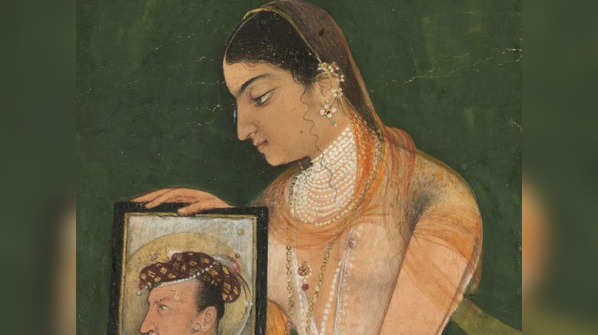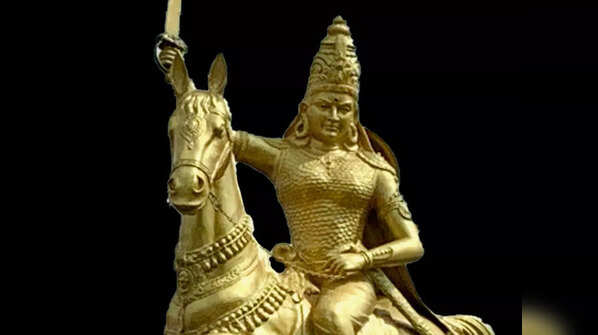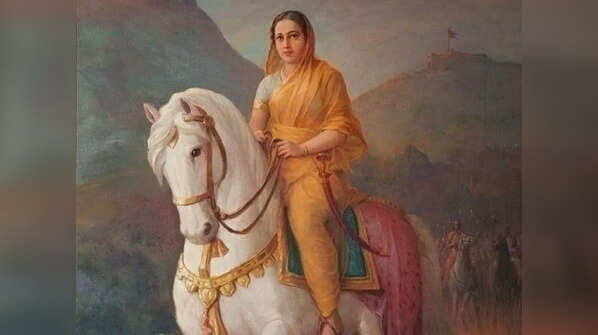Lesser-known highly educated Indian queens in history

Power queens who shaped history due to their education
Indian history is replete with queens who were not only powerful rulers but also highly educated. These queens played significant roles in shaping the cultural and political landscapes of their times. Their education and intellectual pursuits set them apart and allowed them to contribute meaningfully to their kingdoms. This article highlights some of the most educated Indian queens, showcasing their achievements and the impact of their education on their reigns.
Image: Public Domain

Ahilyabai Holkar
Ahilyabai Holkar, the queen of the Malwa kingdom, was renowned for her administrative skills and deep knowledge of scriptures and philosophy. Born in 1725, she received an extensive education in various subjects, including politics, economics, and literature. Ahilyabai’s reign is marked by her efforts to promote education and build infrastructure, such as schools and temples. Her enlightened rule brought prosperity to her kingdom and left a lasting impact on Indian history.
Image: Public Domain

Nur Jahan
Nur Jahan, born as Mehr-un-Nissa in 1577, was one of the most powerful and educated queens of the Mughal Empire. She was married to Emperor Jahangir and played a significant role in the administration of the empire. Nur Jahan was well-versed in Persian, Arabic, and Urdu, and she was known for her poetry and literary contributions. Her education and intelligence allowed her to influence political decisions and lead military campaigns. Nur Jahan’s legacy as a learned and influential queen remains prominent in Mughal history.
Image: Public Domain

Rani Durgavati
Rani Durgavati, the queen of Gondwana, was known for her bravery and intellect. Born in 1524, she was well-versed in Sanskrit, Persian, and the local dialects. Her education enabled her to effectively manage her kingdom and lead her army against the Mughal invasion. Rani Durgavati’s knowledge of military strategies and governance was instrumental in her successful reign. Her legacy as a warrior queen and an educated ruler continues to inspire many.
Image: Indian History Pictures/X

Rani Rudrama Devi
Rani Rudrama Devi, the queen of the Kakatiya dynasty, was a trailblazer in many ways. Born in 1259, she was trained in statecraft, military tactics, and administration from a young age. Her education equipped her to rule effectively and expand her kingdom. Rudrama Devi’s reign is noted for her efforts to strengthen her army and fortify her territories. Her leadership and educational background made her one of the most formidable queens in Indian history.
Image: Courtesy of Oxford University Press

Maharani Gayatri Devi
Maharani Gayatri Devi of Jaipur, born in 1919, was known for her elegance and intellect. She received her education in London and Switzerland, where she studied subjects like English literature, history, and political science. Gayatri Devi’s education and exposure to Western culture influenced her progressive views and philanthropic efforts. She was also a successful politician, serving as a Member of Parliament and advocating for women’s rights and education.
Image: Public Domain

Rani Chennamma
Rani Chennamma of Kittur, born in 1778, was a warrior queen known for her resistance against British colonialism. She was educated in various subjects, including statecraft, military tactics, and local governance. Chennamma’s education enabled her to lead her people effectively and organize a formidable resistance against British forces. Her legacy as an educated and courageous queen continues to be celebrated in Karnataka and beyond.
Image: iStock

Maharani Tarabai
Maharani Tarabai, born in 1675, was a key figure in the Maratha Empire. She was well-educated in politics, military strategy, and administration. Tarabai’s education allowed her to take charge of the Maratha forces after her husband’s death and lead them against the Mughal Empire. Her strategic brilliance and governance skills were pivotal in maintaining the Maratha Empire’s strength during turbulent times.
Image: Public Domain









